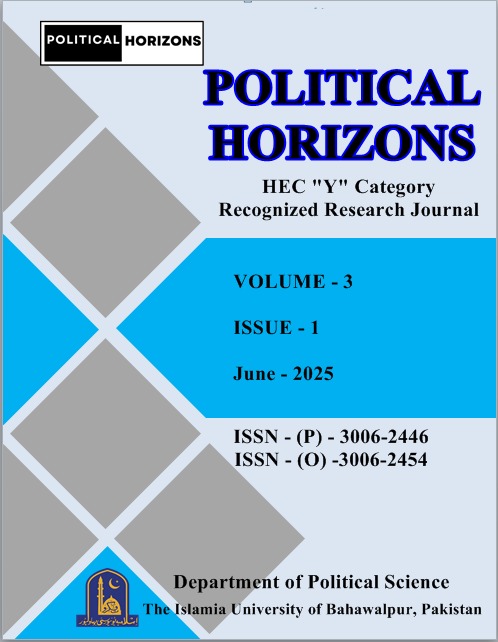The Role of the Supreme Court in Democratic Development in Pakistan (2009–2021)
Abstract
This article studies the role of the apex judiciary in the democratic development in Pakistan from 2009 to 2021, while focusing on the complex institutional interaction and power negotiations between the institutions and politicians. This study utilises a qualitative approach by conducting a case study analysis of selected important judicial verdicts of the apex court through the theoretical lens of the democratic consolidation theory, which requires the “willingness” of key players of a polity to keep democracy as the only game in town. This study contributes to the understanding of the apex judiciary’s behaviour towards democracy in Pakistan, by analysing selected verdicts of apex court involving important political disputes: the legitimacy of Musharraf’s emergency during PPP’s government, disqualification of PPP’s Prime Minister, allegation of defaming the military against PMLN’s Prime Minister, disqualification of PMLN’s Prime Minister and the PTI’s demand for open balloting for Senate’s election. It underscores that the role of the apex judiciary didn’t remain consistent towards democratic development during this period, as some verdicts exhibited a high “willingness” towards democratic development, but other verdicts prioritized compliance of judicial orders, accountability and procedural adherence over political stability, substantial democracy and representation, which resulted into the political loss to the ruling parties PPP, PMLN and PTI during this period. Therefore, the article concludes that the apex judicial forum played a mixed role towards democratic development during the period 2009-2021.
Keywords:, Supreme Court of Pakistan, Democratic Consolidation, Judicial Activism, Hybrid Democracy, Civil-Military Relations.

Downloads
Published
How to Cite
Issue
Section
License
Copyright (c) 2025 Muhammad Tariq Rasheed Qamar, Dr. Yasmin Roofi, Sajjad Hussain

This work is licensed under a Creative Commons Attribution-NonCommercial 4.0 International License.




